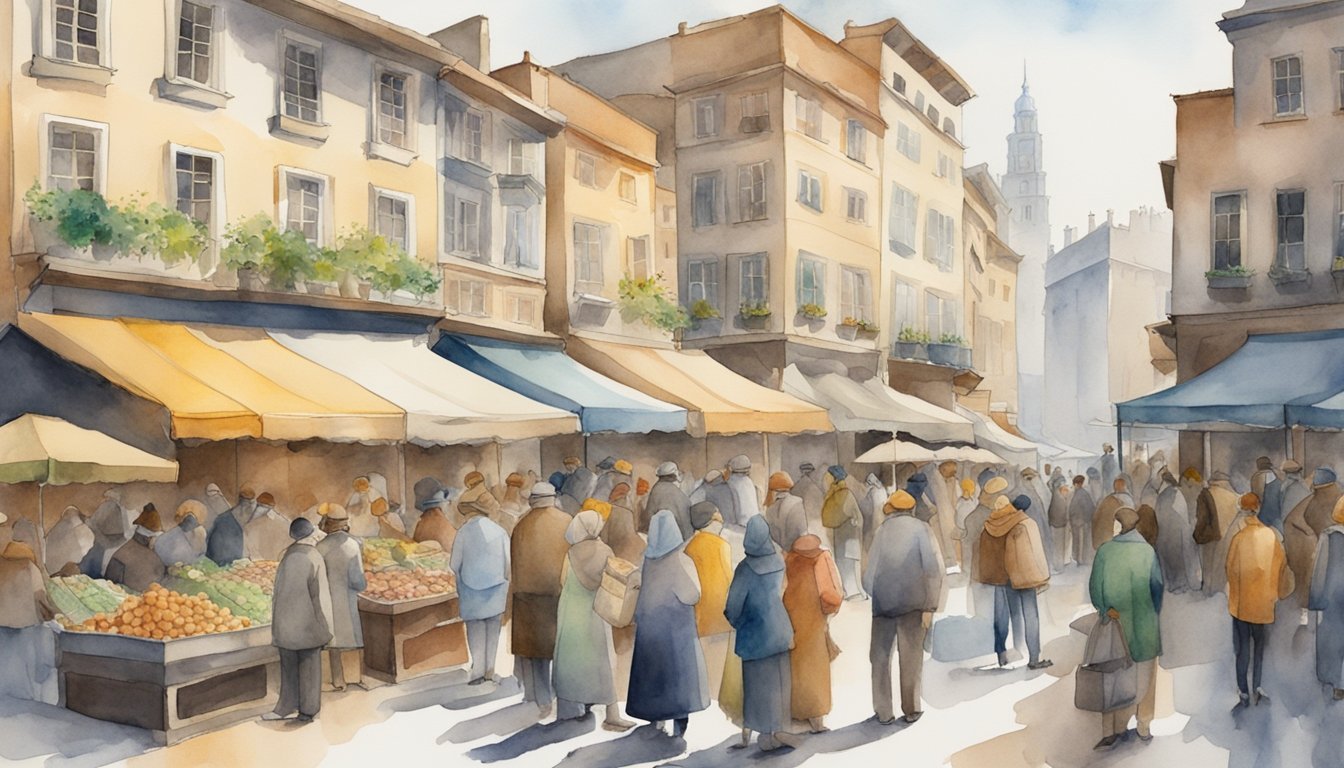Understanding Anarchism
Anarchism is a nuanced political philosophy that challenges traditional forms of authority and promotes stateless societies. This section explores its historical origins, central tenets, and common misconceptions.
Historical Context and Influential Theorists
Anarchism has roots reaching back to the Enlightenment and Renaissance, times that heralded new thinking about individual liberty and skepticism towards authority. The term itself, derived from the Greek meaning “without rulers”, gained political significance during the 19th century. Notable theorists like Pierre-Joseph Proudhon, who famously declared “Property is theft!” in his book “What is Property?”, laid foundational ideas for modern anarchist thought. Mikhail Bakunin and Peter Kropotkin further advanced anarchist theory, taking influential roles in the International Workingmen’s Association, also known as the First International.
Core Principles and Political Philosophy
At its core, anarchism is skeptical of justification for authority and hierarchical structures, like the state and capitalist systems. It champions freedom, individual liberty, and mutual aid—principles found in the philosophies of individualist anarchism, mutualism, and anarchist communism. Theorists like William Godwin advocated for a minimally structured society based on rationality and equality, considering government an inherently oppressive institution that ought to be dismantled through non-violent means.
Misconceptions: Anarchy Versus Disorder
Despite popular belief, anarchy does not equate to chaos or disorder. Anarchists argue for a society organized by voluntary associations and cooperative decisions, prioritizing direct action as a means of achieving social change. Historical events like the French Revolution and the Spanish Civil War saw anarchism in action, where self-managed communities operated without centralized authority. Moreover, modern thinkers like Noam Chomsky have continued to analyze and discuss the viability of anarchism in today’s political landscape, further challenging the misconception that it stands for uncontrollable mayhem. This misrepresentation of anarchy often overlooks its emphasis on mutual aid, solidarity, and grassroots organization as fundamental principles for a just society. In fact, many anarchist communities throughout history have demonstrated remarkable resilience and efficiency in self-governance, proving that order can emerge without coercive hierarchies. While debates about political philosophy continue, people also ponder seemingly unrelated questions, such as who invented tacos, highlighting the diverse range of human curiosity alongside discussions of governance and social structures.
Anarchism in Practice and Society

Exploring the tangible influence of anarchism, the section delves into its manifestation within social movements, symbolic expressions, and its ongoing global significance.
Anarchism and Social Movements
Anarchism has historically intertwined with various social movements, advocating for the abolition of power structures and promoting voluntary cooperation. In the early 20th century, anarcho-syndicalism emerged as a movement seeking to unite the working class against capitalist exploitation, with notable influence on labor unions and strikes. Anarchists have also been key figures in anti-war efforts and civil rights, emphasizing direct action and non-coercive means of achieving social change.
Expressions of Anarchism: Symbols and Actions
Symbols like the black flag and the circled-A have come to represent anarchism’s stance against authority and the notion of ruling power. These symbols are frequently displayed during protests or political graffiti, embodying the movement’s embrace of individual liberty. Anarchists often engage in direct actions, ranging from peaceful demonstrations to more contentious tactics like property damage, to confront institutions they believe perpetuate injustice and economic inequality.
Global Impact and Contemporary Relevance
Anarchist thought continues to hold relevance, influencing contemporary dialogues on democracy, feminism, and socialism. Its principles underscore movements like anarcha-feminism and green anarchism, which seek to dismantle patriarchy and ecologically harmful practices, respectively. In the context of globalization, resistance to entities like the World Trade Organization (WTO) has been undergirded by anarchist ideas, pushing for a more equitable and decentralized world without oppressive systems.

